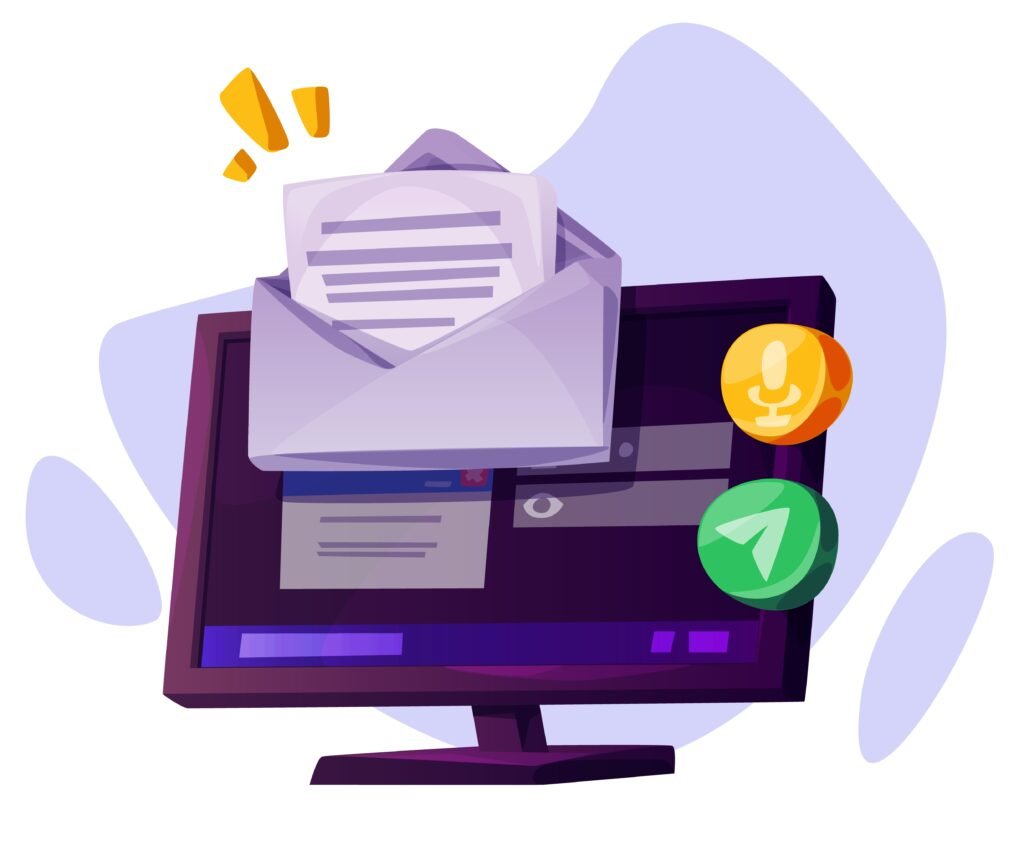In today’s digital age, email marketing remains a powerful tool for businesses to connect with customers, nurture leads, and drive sales. But with inboxes overflowing with messages, how do you make your emails stand out? The answer lies in understanding the psychology of email marketing.
By delving into the minds of your subscribers, you can craft campaigns that resonate on a deeper level, increase engagement, and ultimately achieve your marketing goals. This article explores the key principles of psychology of email marketing and provides actionable tips to craft effective email campaigns.
Why Psychology Matters in Email Marketing
The psychology of email marketing focuses on understanding how subscribers think, feel, and behave when they encounter your emails. It’s about leveraging these insights to create targeted messages that trigger a desired response.
Here’s how understanding subscriber behavior benefits your email marketing efforts:
- Increased Open Rates: Subject lines that pique curiosity, tap into emotions, or create a sense of urgency can entice subscribers to open your emails.
- Improved Click-Through Rates: Compelling content, clear calls to action (CTAs), and a well-designed email layout can encourage subscribers to click through and engage further.
- Enhanced Brand Loyalty: Personalized messages, valuable content, and a focus on building relationships can foster trust and loyalty towards your brand.
- Boosted Conversions: By understanding subscriber motivations and pain points, you can craft email campaigns that address their needs and drive them towards conversions.
Decoding Subscriber Behavior: Key Psychological Triggers
Several psychological principles can significantly impact how subscribers respond to your emails. Let’s explore some of the most powerful ones:
-
The Power of Personalization: People crave a sense of individuality. Psychology of email marketing emphasizes personalization as a key strategy. By addressing subscribers by name, segmenting your list based on interests, and tailoring content accordingly, you create a more relevant and engaging experience.
-
Emotional Connection: Emotions significantly influence decision-making. Psychology of email marketing suggests crafting email content that evokes positive emotions like excitement, joy, or humor. Alternatively, you can leverage the fear of missing out (FOMO) or scarcity to create a sense of urgency and encourage prompt action.
-
Storytelling: Stories have the power to capture attention, build trust, and create a lasting impression. Psychology of email marketing highlights the effectiveness of incorporating storytelling elements in your emails. Share customer testimonials, showcase your brand story, or use case studies to connect with subscribers on a deeper level.
-
Social Proof: People are more likely to trust and engage with something others find valuable. Psychology of email marketing emphasizes leveraging social proof to build trust and credibility. Include customer reviews, testimonials, or influencer endorsements in your emails to show potential customers the value your brand offers.
-
The Reciprocity Principle: People feel obligated to return favors. Psychology of email marketing suggests incorporating the reciprocity principle into your email strategy. Offer valuable content, free resources, or exclusive discounts to incentivize subscribers and build stronger relationships.
Putting Psychology into Action: Crafting Effective Email Campaigns
Now that you understand the core principles of psychology of email marketing, here are some practical tips to implement these strategies in your campaigns:
-
Segment Your Audience: Divide your email list into groups based on demographics, interests, or purchase history. This allows you to send targeted messages that resonate with each segment.
-
Craft Compelling Subject Lines: Subject lines are the first impression your email makes. Use strong verbs, create a sense of urgency, or ask a question to pique curiosity and encourage opens.
-
Personalize Your Content: Address subscribers by name, reference past purchases, or recommend products based on their interests.
-
Optimize Your Email Design: Keep your email layout clean and professional. Use high-quality images, clear fonts, and a strong CTA button to guide subscribers towards the desired action.
-
Focus on Value Delivery: Provide valuable content that addresses your subscriber’s needs and interests. This could include industry insights, educational resources, or exclusive discounts.
-
A/B Test Everything: Test different subject lines, email designs, and CTAs to see what resonates best with your audience. Psychology of email marketing is an ongoing process of experimentation and optimization.
By understanding the psychology of email marketing and applying these actionable tips, you can create email campaigns that capture attention, drive engagement, and ultimately achieve your marketing goals. Remember, successful email marketing is about building relationships with your subscribers, not just selling to them. Focus on providing value, fostering trust, and understanding their motivations to create email campaigns that resonate and convert.
Pro Tip
Ready to unlock the power of email marketing and build stronger relationships with your audience? Sign up for a free ConvertKit account today!


